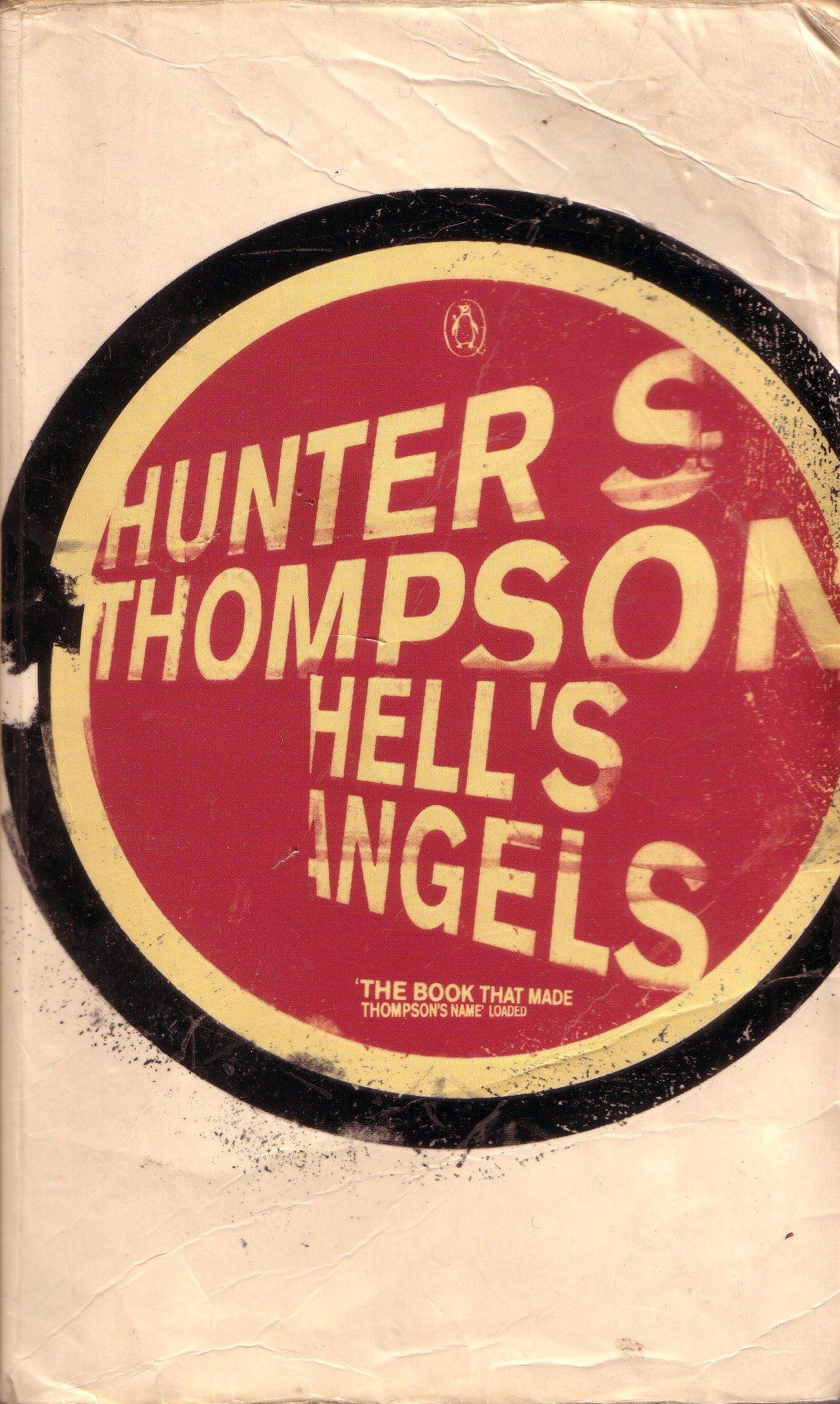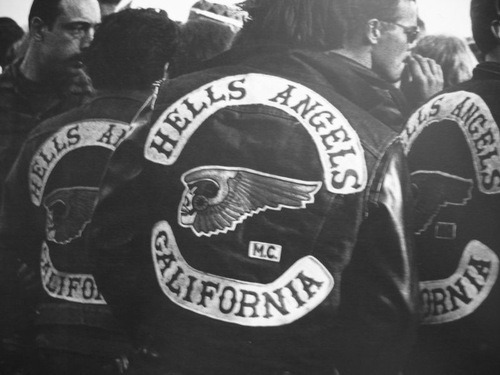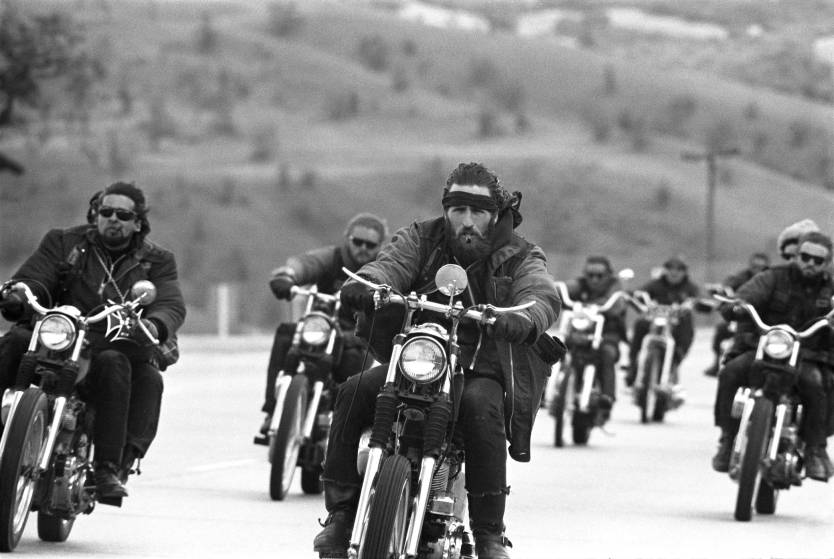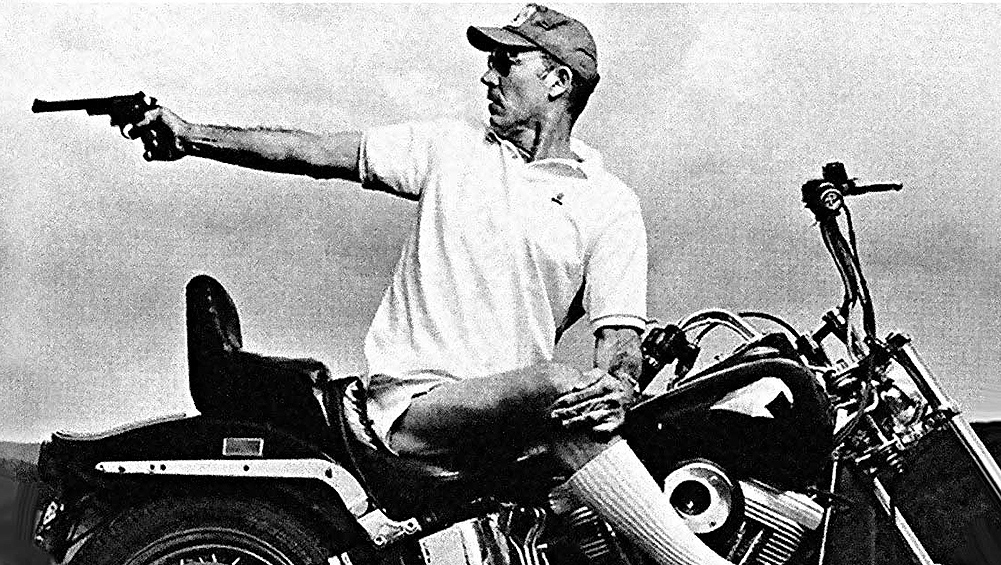Hell's Angels by Hunter S. Thompson
He died in the best outlaw tradition; homeless, stone broke, and owning nothing but his clothes and his Harley.
— Hunter S. Thompson

Brutes. Huns. Thugs. Murderers. Rapists. Lowlifes. Outlaws. The Hell’s Angels, a motorcycle club out of Oakland, California, was a force to be reckoned with in the mid-sixties, with a terrifying mystique surrounding them akin to the one that surrounds the wendigo and the sasquatch. Hunter S. Thompson, intrigued by the horror stories circulating around the state and the media about this band of criminals, threw himself into their midst.
Thompson spent almost two years living, riding, and partying with the notorious group to get a better understanding of them and whether the reports about their exploits were accurate. He went even as far as allowing members of the Angels to treat his apartment as a kind of flophouse, much to the chagrin of his terrified neighbours. Their roaring choppers could be heard and their bizarre appearances beheld at all hours of the day and night.
It is through firsthand interviews and accounts in the Gonzo style Thompson pioneered that the author paints a detailed portrait of the outlaws. Many of them came from broken homes and poor backgrounds, and are simply living through the same sad cycle as their forebears. Others reject the establishment and the Man, sticking it to everything polite and civilised, and riling up the Main Cop at every opportunity. There are also those with steady jobs as truck drivers, labourers, and dock workers, who live family lives and mainly stick around the club for the brotherhood. This motley crew of misfits is what the Angels were comprised of in their period of intense notoriety in the sixties, though the media at the time categorised each and everyone of them as hardened career criminals who would kill you without a second thought.

Though with that thought, it is still a brotherhood that you would do well to stay on the good side of. When a member of the Angels is provoked or insulted, (sensitivity to insults are spread over various levels between members), the resulting fight is one in all in. If even one man chooses foolishly to get in an altercation with the Angels, he will soon find himself being pummelled, stomped, and whipped from all directions, his body wracked with pain as the direct result of the group reputation. It is never a one-on-one, fair fight. The instigator may have eight Angels pile in, or have a wrench crash down on his head from behind as he focuses on the man in front of him. It is best to give them a wide berth, as if they were a clan of enraged hippopotamuses.
The Angels were well known for their “runs”, usually held on Labour Day and the fourth of July weekends, where they would descend on a small town like locusts. Depending on who you asked or the papers you read they would do one of two things. They would either drink all the beer in town and race their bikes down Main street before retreating into the night or they would violently riot, destroying each business and piece of personal property with the savage effectiveness of an artillery strike, taking into the hills every mother and daughter in town as a forced harem with which to indulge their base instincts.
Despite some exaggerations, Thompson shows his chops as a journalist in this novel. He examines statistics, news articles, crime figures, reports, and facts, going so far as to call primary sources of news and interviewing them personally to get a better sense of what the Angels actually did when they blew through town. The truth, while still far from pleasant, is far removed from the bestial hysteria of the media, and actual events did match up to the media narrative. Some things never change.

This is most exemplified in the 1965 Labour Day run to Bass Lake, California, a tourist town that prepared for the arrival of the Angels as though it were the second coming of Christ followed shortly thereafter by the inevitable apocalypse. Apart from some brief trouble with locals, the town’s sheriff Tiny and Sonny Barger, the president of the Angels, were able to keep the Angels cordoned off in their own camp on the far side of the lake. Here they were free to howl at the moon like savage heathens while they consumed copious amounts of drugs and alcohol. Having an inside source actually there in the form of Thompson is almost as good as being there, and much safer, like viewing a great white shark gliding underwater behind three inch thick glass at the aquarium.

This novel will answer any question you ever had about outlaw motorcycle clubs. Their rituals, codes, histories, dress, and obsession with bikes are covered here by Thompson in visceral detail, capturing a slice of something so American in nature it may as well have been printed on the stars and stripes. So pull on your cut, rev up your chopper, get to the nearest bookstore and politely buy a copy of this book. There must be a ninety-nine percent for these one-percenters to exist in their bizarre, chaotic dimension.